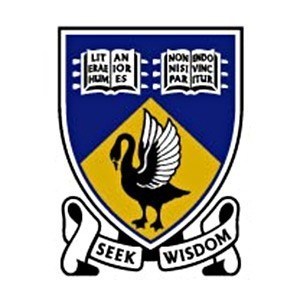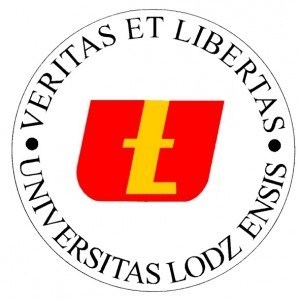Photos of university / #ucl
The Postgraduate Certificate in Prosthodontics at University College London offers advanced training for dental professionals seeking to specialize in the restoration and replacement of teeth. This programme provides a comprehensive curriculum that combines theoretical knowledge with practical clinical skills, enabling graduates to excel in the complex field of prosthodontics. Participants will explore a wide range of topics, including fixed and removable prostheses, implant dentistry, occlusion, and aesthetic rehabilitation, supported by the latest evidence-based practices and technological innovations. Delivered by expert faculty affiliated with UCL Eastman Dental Institute, the programme emphasizes hands-on experience through supervised clinical practice, case analyses, and research projects. Students will develop critical thinking and problem-solving abilities essential for managing diverse prosthodontic cases, from simple restorations to complex full-mouth reconstructions. The curriculum also incorporates training in dental materials, digital dentistry, and interdisciplinary collaboration, ensuring practitioners stay at the forefront of the field. Designed for qualified dentists wishing to deepen their expertise or prepare for specialist training, this postgraduate certificate can be completed part-time over a flexible timeline. Successful graduates will be equipped to enhance their clinical practice, pursue further academic qualifications, or prepare for specialty examinations. With its state-of-the-art facilities, international faculty, and strategic location in London, UCL provides an excellent environment for professional growth and networking within the dental community. By completing this programme, students will gain a solid foundation in advanced prosthodontic techniques and a greater confidence in delivering high-quality patient care in diverse clinical settings.
The programme offers practical experience in advanced conservation, fixed (conventionally prepared and resin-retained designs) and removable prosthodontics, and implant-supported prostheses for single missing teeth, partial or completely edentulous cases, alongside an introduction to occlusal registration techniques and the range of diagnostic procedures required to ensure effective planning and design of oral reconstructions.
Students undertake modules to the value of 360 credits. All modules are compulsory.
Year one consists of core modules (165 credits). Year two consists of core modules (105 credits), and a dissertation (90 credits). Year three (Speciality/Advanced Training only) is not credit-bearing.
Core modules
- Interdisciplinary Aspects of Restorative Treatment
- Principles of Treatment Core Module (Conservative Dentistry, Implant Dentistry, Prosthodontics)
- Fundamentals of Fixed and Implant Prosthodontics
- Fundamentals of Removable Prosthodontics
- Prosthodontic Treatment Planning and Functional Occlusion
- Prosthodontic Clinical and Laboratory Care I
- Advanced Restorative Seminars - Clinical Log Book I and Case Reports I
- Prosthodontic Operative Dentistry and Endodontics
- Advanced Fixed, Removable, Implant and Maxillofacial Prosthodontics
- Prosthodontic Clinical and Laboratory Care 2
- Prosthodontic Clinical Log Book and Case Reports 2
- Clinical Science and Research Methods
Dissertation/report
All students undertake an independent research project in year two which culminates in a dissertation of approximately 13,000–15,000 words.
Teaching and learning
The programme is delivered through one-to-one clinical and laboratory instruction, seminar teaching, lectures, journal club, individual work including a research project, self-directed learning and problem-based learning.
All applicants must normally hold an approved dental qualification and have a minimum of two years' clinical experience post-qualification.
The Prosthodontics postgraduate programme at University College London offers a comprehensive curriculum designed to develop advanced clinical, theoretical, and research skills in the field of prosthodontics. Regarding financing studies, students are advised to explore a variety of funding options to support their educational pursuits. The university provides information on available scholarships, bursaries, and financial aid opportunities to assist both domestic and international students in managing tuition fees and living expenses. Prospective students should consider applying for UCL scholarships, which are awarded based on academic merit or financial need and may cover partial or full tuition costs. Additionally, students can look into external funding sources such as government loans, private scholarships, and sponsorships from dental associations or professional bodies relevant to prosthodontics. It is also recommended to account for costs related to registration, materials, and potential research activities associated with the programme. The university encourages early financial planning and suggests consulting the UCL Financial Support Office for personalized advice tailored to individual circumstances. Part-time work opportunities are available on campus, which can help students offset expenses while balancing clinical and academic commitments. International students should be aware of specific visa regulations that may stipulate restrictions on employment during their studies. Furthermore, the university occasionally offers temporary financial aid schemes or emergency grants for students facing unforeseen financial hardship. Students are encouraged to explore all avenues of funding well ahead of the programme commencement to ensure a smooth educational experience. Detailed information about scholarships, bursaries, and eligibility criteria can be found on the official UCL website. Overall, financing a postgraduate Prosthodontics programme at UCL involves strategic planning and utilization of diverse funding sources to effectively support students throughout their studies, enabling them to focus on achieving their academic and professional goals in prosthodontics.
Prosthodontics at University College London offers advanced postgraduate training for dental professionals seeking specialization in restoring and replacing teeth. The program is designed to provide comprehensive knowledge and practical skills in esthetic and functional rehabilitation of patients. Students enrolled in this program gain a thorough understanding of complex restorative procedures, including the use of fixed and removable prostheses, implant-supported restorations, and advanced crowns and bridges. The curriculum emphasizes evidence-based practice, integrating the latest research and technological advancements in prosthodontics.
The program combines theoretical coursework with hands-on clinical training, enabling students to develop both their diagnostic and treatment planning capabilities. Participants have access to state-of-the-art facilities, including modern dental simulation labs and clinical environments, allowing them to refine their skills in a controlled setting before applying them in real patient care. In addition, students are encouraged to engage in research activities, contributing to the advancement of prosthodontics knowledge through thesis projects and scholarly work.
Teaching faculty comprises experienced prosthodontists and dental academics who provide mentorship and expertise throughout the course. The program typically involves assessments through coursework, clinical evaluations, and a final dissertation. Graduates of the program are well-equipped to practice independently as specialists, pursue academic careers, or engage in advanced research.
UCL’s program also emphasizes ethical dental practice, patient-centered care, and the importance of lifelong learning. The interdisciplinary approach encourages collaboration with other dental specialists, fostering a holistic approach to patient management. The program duration is usually one to two years, depending on whether students undertake it full-time or part-time, and it is suitable for qualified dentists aiming for specialization in prosthodontics within the UK or internationally.







